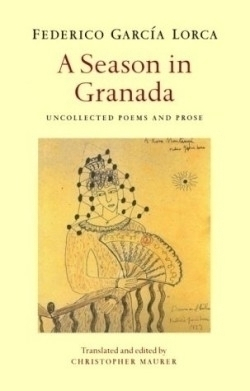A Season In Granada
Uncollected Poems and Prose
Federico Garcia Lorca was born near and lived largely in Granada, Spain. He, in fact, was murdered in a forest in the environs of this ancient and lovely city. This collection is a welcome addition to the body of his work that has been available to English speaking readers. The two suites of “Summer Hours” and “Poem of the Fair” are full of poems conscientiously translated and edited by Christopher Maurer. According to Maurer these works are patterned after the musical compositions of Claude Debussy. An avid composer himself, Lorca matched the tone of some of his favorite works.
One gets a glimpse of a Lorca at peace in these poems. At peace with his world, nature and the divine, he seems to find this in his beloved city. These are not openly politically directed, do not reflect the uneasy tortured depths seen in many of his other poems. These “moments,” estampas, (prints), are clear lozenges of time, lured into focus, to be savored and relished. Joyful poems that bring a sense of sanctuary. Playful poems full of childhood. In the essays, however, one remembers the darker Lorca, author of Poeta en Nueva York and La Casa de Bernarda Alba… In the essays “Granada, Paradise Closed To Many,” “Holy Week in Granada” and “How a City Sings From November,” we are offered an intimate, historical and rich insight into the nature of this city Lorca knew so thoroughly. The section Notes at the end gives us insight into each of the works through background and bibliography. This gathering of words by the martyred poet, writer, artist and composer, is an opportunity to continue to discover and pay homage to a truly valiant figure of this century.
Reviewed by
Gabrielle Shaw
Disclosure: This article is not an endorsement, but a review. The publisher of this book provided free copies of the book to have their book reviewed by a professional reviewer. No fee was paid by the publisher for this review. Foreword Reviews only recommends books that we love. Foreword Magazine, Inc. is disclosing this in accordance with the Federal Trade Commission’s 16 CFR, Part 255.


